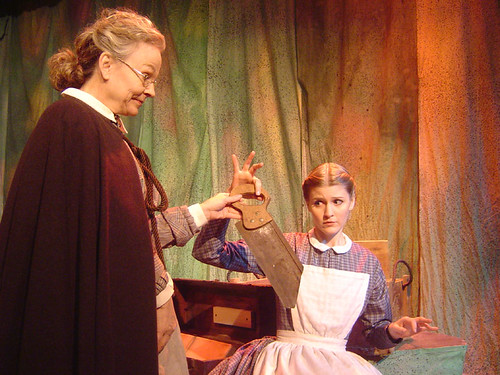In the four and a half years since the September 11 attacks, New Yorkers’ lives have changed in a number of ways, some obvious and predictable, others not so much.
Even as we go about our daily business we’re conscious, of course, of the potential for an attack at any time. Naturally we’re inclined to think “terrorism” whenever there’s a sudden infrastructure problem such as a power outage. And we’ll never look at our firefighters in quite the same way again.
But another change has crept up on me in the past couple of years: a change in my life as an audience – as a watcher of movies, a collector of TV shows on DVD, and above all, as a reader of books.
As it turns out, 9/11 has drawn an indelible line across the modern storytelling oeuvre. Works composed before the event differ from those composed after – not necessarily in their content, or even in any inherent quality, but in the light in which – or shadow under which – I will read them.
I don’t read a great many new novels, but I did read Nicholas Rinaldi’s New York tale Between Two Rivers, published in 2004. Only a small part of the book dealt directly with the attacks, but the whole story seemed suffused in a consciousness of destruction, of endings. Just as a New York apartment is classified as pre- or postwar, so must a New York novel now be called pre- or post-9/11. Rinaldi’s was the first post-9/11 novel I read.
Just today I picked up a copy of Paul Auster‘s The New York Trilogy. Auster is one of those writers I have always intended to read but never gotten around to, mostly because I’m very contrary in my reading habits and hate to be reading what everybody else is. (I resisted The Hitchhiker’s Guide to the Galaxy precisely because all my college buddies were going apeshit over it; and to this day I haven’t read the damn thing. My loss, I suppose.)
Still, Auster has always seemed an obvious choice on whom to spend some of my limited novel-reading time. Local not only to New York but to my own Brooklyn neighborhood, usually featured prominently on the “Local Authors” shelf of the Barnes and Noble stores around here, he is also considered a Major Literary Author on a national scale.
So, picking up the book, which was written in the mid-to-late 1980s, I read the intriguing first sentence:
It was a wrong number that started it, the telephone ringing three times in the dead of night, and the voice on the other end asking for someone he was not.
So far so good: like any good story, it evokes a place, a situation. Specifically, I’m in somebody’s head as he remembers how something started: how the thing, whatever it was, started with the phone ringing while he, whoever he is, was in bed, and how it was a wrong number.
About the period, the sentence tells me only that the action takes place sometime since the advent of the telephone. The thirties. The fifties. The eighties. The present. Prior to 9/11, I would simply have absorbed what I could from it, and continued reading,
But I know something else, something that five years ago wouldn’t have seemed so important: when the story was written.
I know it is pre-9/11 – from modern times, but before the attack. I also know from the title that the story’s going to take place in New York. Hence its fictional New Yorkers will not have experienced the defining New York moment that was 9/11. They’ll inhabit a version of the city that no longer exists. Still “modern times,” but no longer the same times today’s reader is living. 9/11 hadn’t informed the author’s imagination. In this book, it will not have happened.
Today, and maybe until I die, I will be approaching any book – and even a pre-9/11 movie or TV series, if I’m not familiar with it – not simply as a modern story about a familiar world or city. Rather, I will be approaching it in the shadow, or in the light, of a great divide. I will have to know: was the story imagined and birthed prior to the attack? Or does it have that smoke in the lungs, that soot on the face, that shock hardened into the bones of the 9/11 survivor?
Of course this won’t apply to older stories, those set in a time that from the vantage point of September 10 2001 already felt like another era. If I revisit a classic – Herman Melville, Humphrey Bogart – or check out some Nabokov or Billy Wilder I’ve missed, then no sweat.
But if it’s from the world that I myself knew prior to 9/11, my interest may be just a little bit less.
In fact, I might feel like turning to my friend and bandmate Patrick Nielsen Hayden, who edits science fiction and fantasy, and ask “What have you got that’s good lately?”
Ahhh. Faeries.
